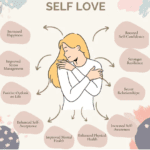The Benefits of Lifelong Learning and How to Stay Curious
In a world that is constantly evolving, lifelong learning has become more essential than ever. Whether you’re advancing your career, picking up new hobbies, or simply staying informed, the habit of continuous learning brings numerous benefits. But beyond just acquiring knowledge, lifelong learning fosters curiosity—a key ingredient for personal and professional growth. Let’s explore why lifelong learning matters and how you can cultivate an insatiable curiosity for the world around you.
The Benefits of Lifelong Learning
1. Personal Growth and Fulfillment
Engaging in continuous learning helps expand your perspective and enhances your understanding of the world. Whether it’s learning a new language, playing a musical instrument, or diving into philosophy, new knowledge enriches life and leads to a greater sense of fulfillment.
2. Career Advancement
Industries are rapidly changing, and keeping your skills updated gives you a competitive edge. Whether through online courses, certifications, or workshops, learning new skills can open doors to promotions, job changes, or even entirely new career paths.
3. Mental Agility and Cognitive Health
Studies show that engaging in mentally stimulating activities helps maintain cognitive function and reduces the risk of cognitive decline as we age. Challenging your brain with new information keeps it sharp and agile.
4. Adaptability in a Changing World
The ability to adapt to change is crucial in today’s fast-paced world. Lifelong learners embrace new technologies, ideas, and methodologies with ease, making them more resilient in the face of uncertainty.
5. Strengthened Social Connections
Learning often involves interacting with others, whether in a classroom, online forum, or book club. This fosters new friendships and professional relationships that can be both enriching and rewarding.
How to Stay Curious and Keep Learning
1. Follow Your Interests
Start with subjects that naturally intrigue you. Whether it’s space exploration, history, or photography, exploring topics that captivate you will make learning enjoyable and effortless.
2. Ask Questions and Seek Answers
Curiosity begins with asking “why” and “how.” Challenge yourself to question assumptions, research new ideas, and dive deeper into topics that pique your interest.
3. Read Widely and Often
Reading is one of the most accessible ways to expand your knowledge. Diversify your reading list with books, articles, and journals on a variety of subjects.
4. Take Online Courses and Attend Workshops
Platforms like Coursera, Udemy, and Khan Academy offer courses on countless topics. Attending workshops, webinars, or local classes can also provide hands-on experience and networking opportunities.
5. Engage in Meaningful Conversations
Surround yourself with people who inspire curiosity. Engaging in thoughtful discussions with experts, mentors, or friends can spark new ideas and encourage deeper exploration.
6. Try Something New
Step out of your comfort zone by picking up a new hobby, traveling to unfamiliar places, or learning a new skill. Novel experiences keep the brain engaged and foster curiosity.
7. Keep a Learning Journal
Documenting what you learn helps reinforce new knowledge and track your intellectual growth over time. Writing down thoughts, reflections, and questions can also fuel further curiosity.
Final Thoughts
Lifelong learning is a mindset that transforms the way we experience the world. By staying curious and actively seeking knowledge, you not only enhance your personal and professional life but also keep your mind sharp and open to endless possibilities. So, what will you learn next?



